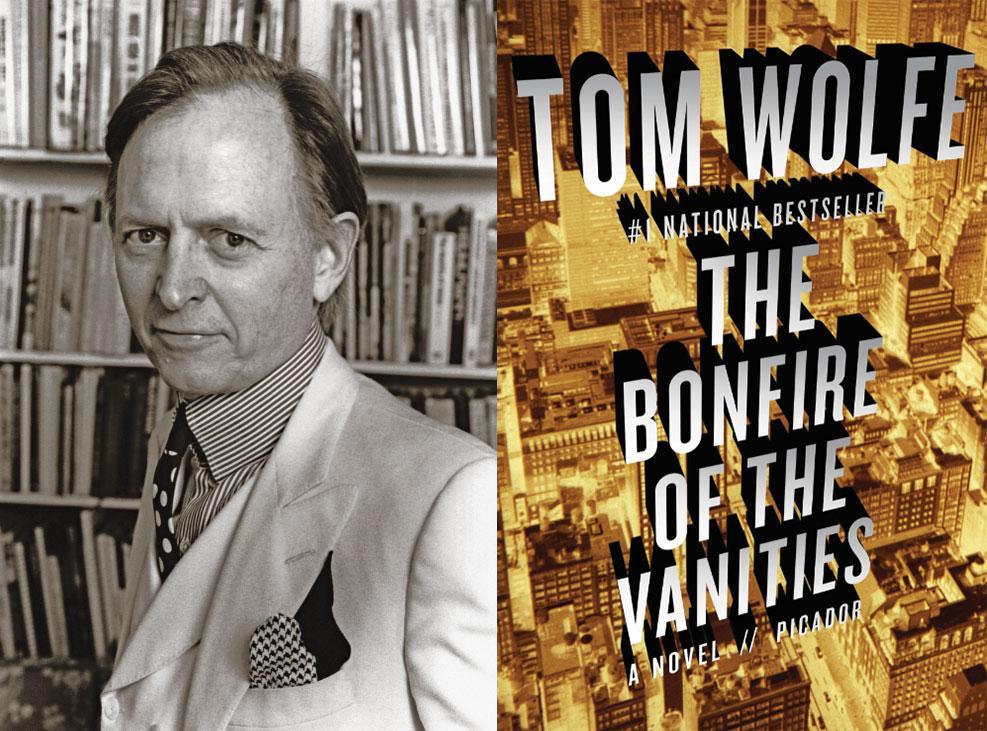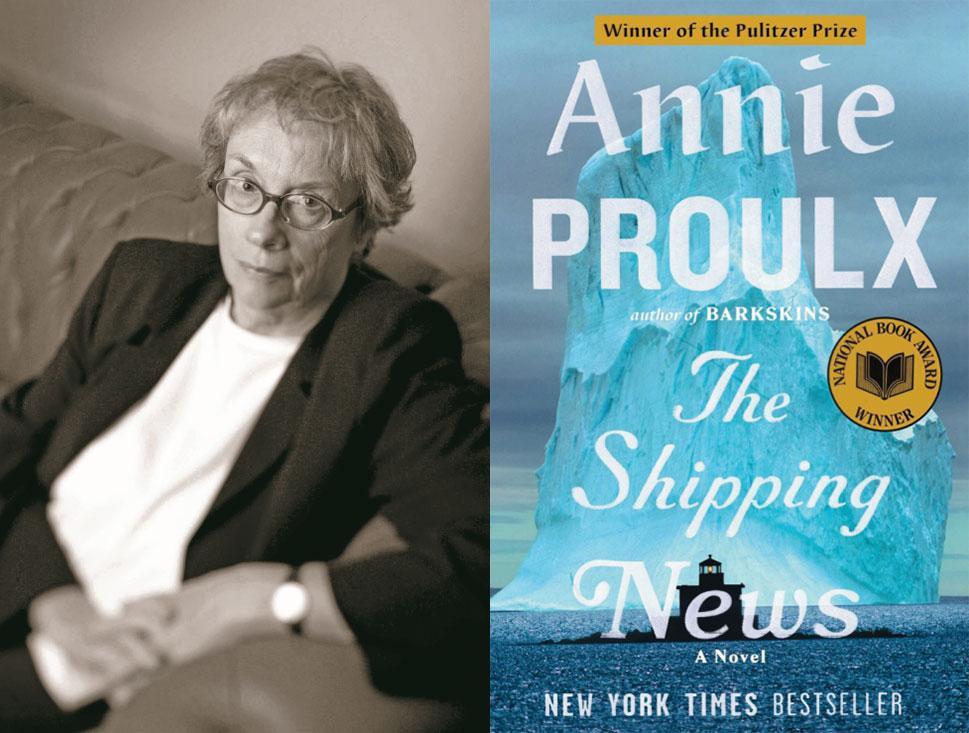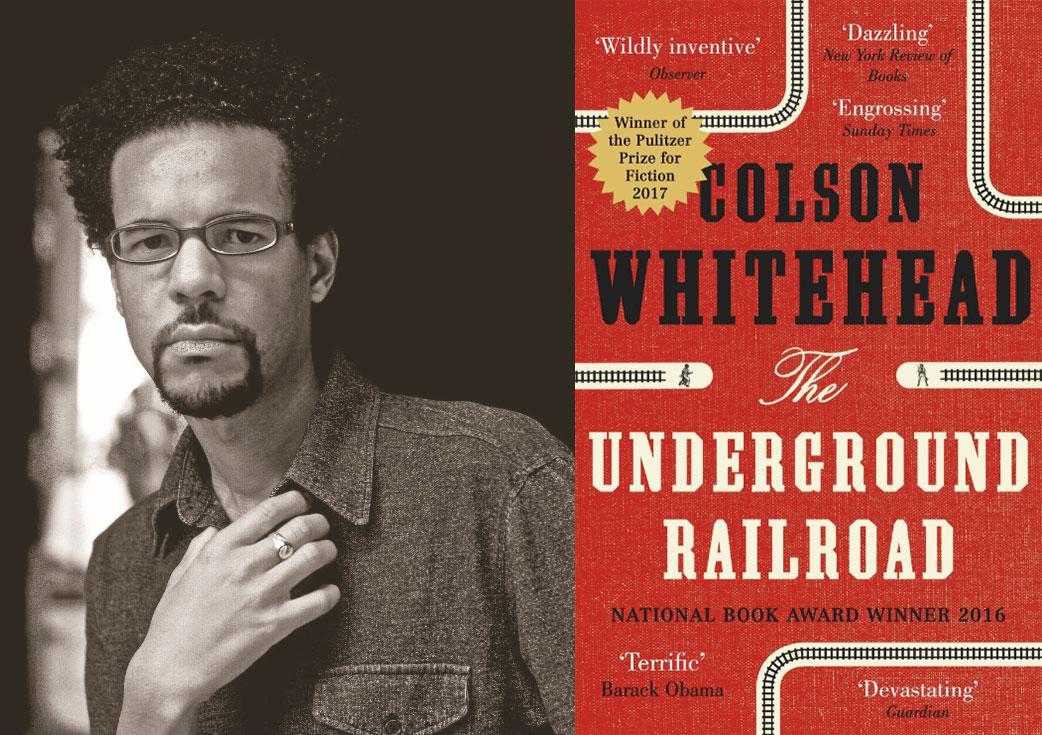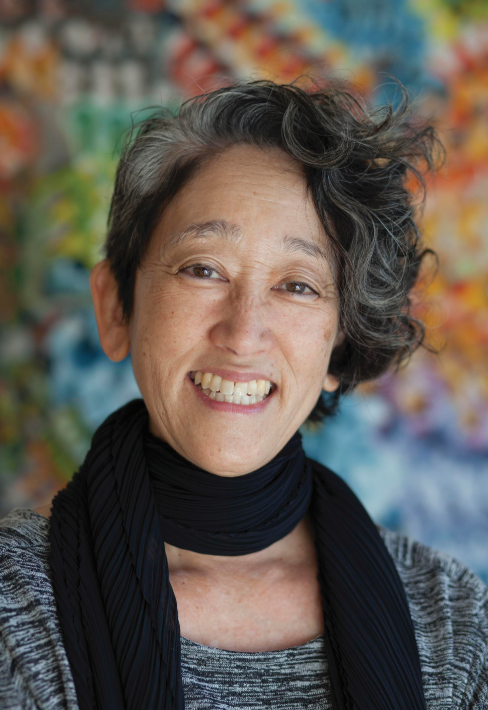

Tom Wolfe, Annie Proulx, Colson Whitehead. They are counted among America’s greatest authors, their works achieving critical acclaim and a place in the syllabi of classrooms from sea to shining sea. But before all that—when most of the world was just beginning to take note of their talent—they all came to Longwood. Why?
Since 1980, Longwood’s Department of English and Modern Languages has been honoring American authors with one of the least well-known but most highly sought-after literary prizes—the John Dos Passos Prize. It’s a coveted prize within the literary community because of the department’s track record in tapping authors who then go on to win the top literary awards in the world.
“We like to think of the Dos Passos Prize as almost the Golden Globes to bigger prizes’ Oscars,” said Dr. John Miller, professor of early American literature, who is on the award committee. “The Dos Passos recognizes qualities in writers that tend to draw the attention of other awards.”
The Dos Passos Prize was created to honor one of the greatest and most overlooked authors of the 20th century, John Dos Passos, best-known for his U.S.A. trilogy. It is given annually to a contemporary American author who has produced a substantial body of published work that displays characteristics of Dos Passos’ writing: an intense and original exploration of specifically American themes, an experimental approach to form and an interest in a wide range of human experience.

Dos Passos honorees include authors who have gone on to receive the Pulitzer Prize, Man Booker Prize, National Book Award (four times) and PEN/Faulkner Award. More than 10 Guggenheim Fellows also are among the Dos Passos recipients.
The 2012 Dos Passos winner, Colson Whitehead, spoke at Longwood just after the publication of his fifth book, Zone One. He had been awarded a MacArthur Fellowship, commonly known as a “genius grant” a decade prior, but had yet to find national success. Zone One was a New York Times best-seller, but it was his next novel, The Underground Railroad, that earned him the Pulitzer Prize for fiction and the National Book Award.

The 1984 Dos Passos awardee, Tom Wolfe, had already made his mark on the world of nonfiction with The Electric Kool-Aid Acid Test and The Right Stuff in the 1960s and ’70s. But when he arrived at Longwood to accept his award, he was in the middle of writing his first novel.
“When you all were kind enough to give me the prize, I happened to be in the midst of writing The Bonfire of the Vanities, and I was suffering from a severe case of The Doubts,” Wolfe told English professor Martha Cook.
“The prize itself did wonders for my spirits at that moment… . The opportunity to read aloud from the early chapters of the book and to get such a wonderful response from the Longwood students and faculty meant a great deal to me.”
Cook, a longtime English professor, chaired the Dos Passos Committee for many years, but it was Longwood alumna Sharon Carson Gibb ’63 who ensured its legacy by endowing the Carson and Sharon Coulter Gibb Fund, which provides much of the funding for the award.
Paul Beatty, the 2015 winner, took a more circuitous route to literary stardom. A slam poet in his youth, he garnered a great deal of attention for his spoken word renditions of his verse, but turned his back on that scene to explore novels. Almost 20 years after his first novel was released, however, the world took note when he published 2015’s Man Booker-winning novel The Sellout. In an interview just before he spoke to a class of Longwood English students who had studied his work, he compared his novels to Dos Passos’ work.
“For me, the parallels really come in the structure and the freedom [Dos Passos] uses in writing—he just sticks all this intertextuality in his books and that stuff is great,” he said. “I remember reading The 42nd Parallel when I was probably 23 or 24, and I said, ‘woah.’ It was dark and heavy and dense, and it really spoke to me. Part of the politics of it, in the decades before World War II, social justice was a part of everything. I have a German friend who is a historian who hates a lot of the literature that came out of the WPA and had a lot of these communist ties. I always tell her that in the States, it was a weird thing, but if that wasn’t tangential on some level to your life, there was something wrong with you in a lot of social circles. [Dos Passos’] novels and my work are both at least aware of that context.”
The 2018 Dos Passos recipient, Karen Tei Yamashita, will accept her award at Longwood on April 4. Yamashita is a novelist, short story writer and playwright who has been named a finalist for the National Book Award for fiction.
“Karen Tei Yamashita’s work is unique in its exploration of characters who live between cultures, nations and groups,” said Dr. David Magill, associate professor of English and chair of the Dos Passos Prize committee. “She challenges our preconceptions of identity and citizenship with narratives of community that stretch across physical borders and confound social categories.”
Readers may find of interest the following additional information about the creation of the John Dos Passos Prize, which was provided by W.C. Woods, an assistant professor of English and journalism at Longwood at the time:
Otis Douglas, an assistant professor of English, was a friend of the Dos Passos family and facilitated the granting of permission to use the author’s name for the prize. The idea for creating the prize came from Dr. Quentin Vest, an associate professor of English. Woods wrote the citation, which is quoted in the article above. Dr. William Frank, chair of the English department, provided the necessary support to bring the prize into being. Pam Woods, a freelance artist, designed the medal that is given with the prize.
John Dos Passos Prize Winners
- Graham Greene, 1980
- Gilbert Sorrentino, 1981
- Robert Stone, 1982
- Dorris Betts, 1983
- Tom Wolfe, 1984
- Russell Banks, 1985
- John Edgar Wideman, 1986
- Lee Smith, 1987
- Shelby Foote, 1988
- Paule Marshall, 1989
- Larry Woidode, 1990
- Elizabeth Spencer, 1991
- William Hoffman, 1992
- Ernest J. Gaines, 1993
- James Welch, 1994
- Helena Maria Viramontes, 1995
- Annie Proulx, 1997
- Maxine Hong Kingston, 1998
- Eric Kraft, 1999
- Jill McCorkle, 2000
- Madison Smartt Bell, 2001
- Randall Kenan, 2002
- Richard Powers, 2003
- Maureen Howard, 2004
- Tim Gautreaux, 2005
- Kent Haruf, 2006
- Allen Wier, 2008
- Robert Bausch, 2009
- Percival Everett, 2010
- Mat Johnson, 2011
- Colson Whitehead, 2012
- Sherman Alexie, 2013
- Ruth Ozeki, 2014
- Paul Beatty, 2015
- Danzy Senna, 2016
- Chang-rae Lee, 2017
- Karen Tei Yamashita, 2018

